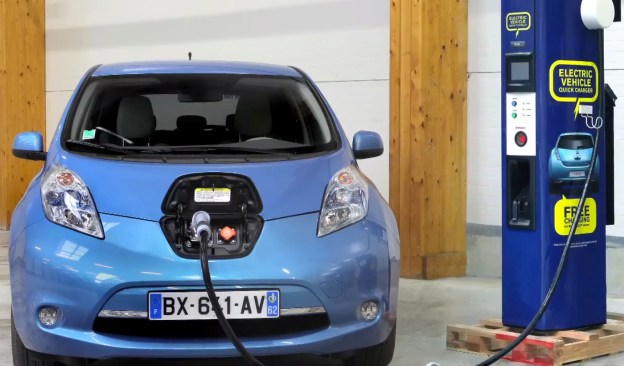
Many EV detractors point to a limited charging infrastructure as a major argument against electric vehicles. While their reasoning has merit, electric cars aren’t quite the nonstarter some make them out to be. It wasn’t too long ago when even the American roadway system and gasoline station network was seriously lacking.
As life-long driver Charlie Yaeger, now age 97, recounts in the video interview by Nissan (below), Americans used to have to memorize where gas stations were in order to ensure completion of their day-to-day driving. Add to that the poor state of local roads and driving most anywhere was quite a chore, not the second thought it is today.
While the Nissan video makes some mistakes in its historical timeline, specifically when President Dwight D. Eisenhower initiated the interstate highway system, it makes a good point: electric cars and the corresponding charging infrastructure is now where gasoline cars were some 80 years ago.
The same could be said about the burgeoning hydrogen fuel-cell-vehicle refueling infrastructure. As we reported last week, there are only 20 public hydrogen stations in the U.S., which is a far cry from the 120,000-some gasoline stations presently in the lower 48 States. Natural gas infrastructure is also still in its nascent stages.
Additionally, the cost of implementing a nation-wide charging infrastructure is minuscule compared to the scope of building the interstate highway system and even the gasoline distribution system. The highways and electrical grid are built, no trucks are needed to haul around tankers full of electricity and using a car charger isn’t much more complex or dangerous than plugging in a lamp.
Like Nissan, we urge consumers to keep an open mind about alternative drivetrain technologies. While they might not be able to directly compete with the ease of use and accessibility of gasoline at the moment, within a few decades – if not sooner – that will all likely change.
What’s your call on the future of driving? Will electric cars rule the roadways, or will it be some other fuel, like natural gas or hydrogen? Leave a comment below.


